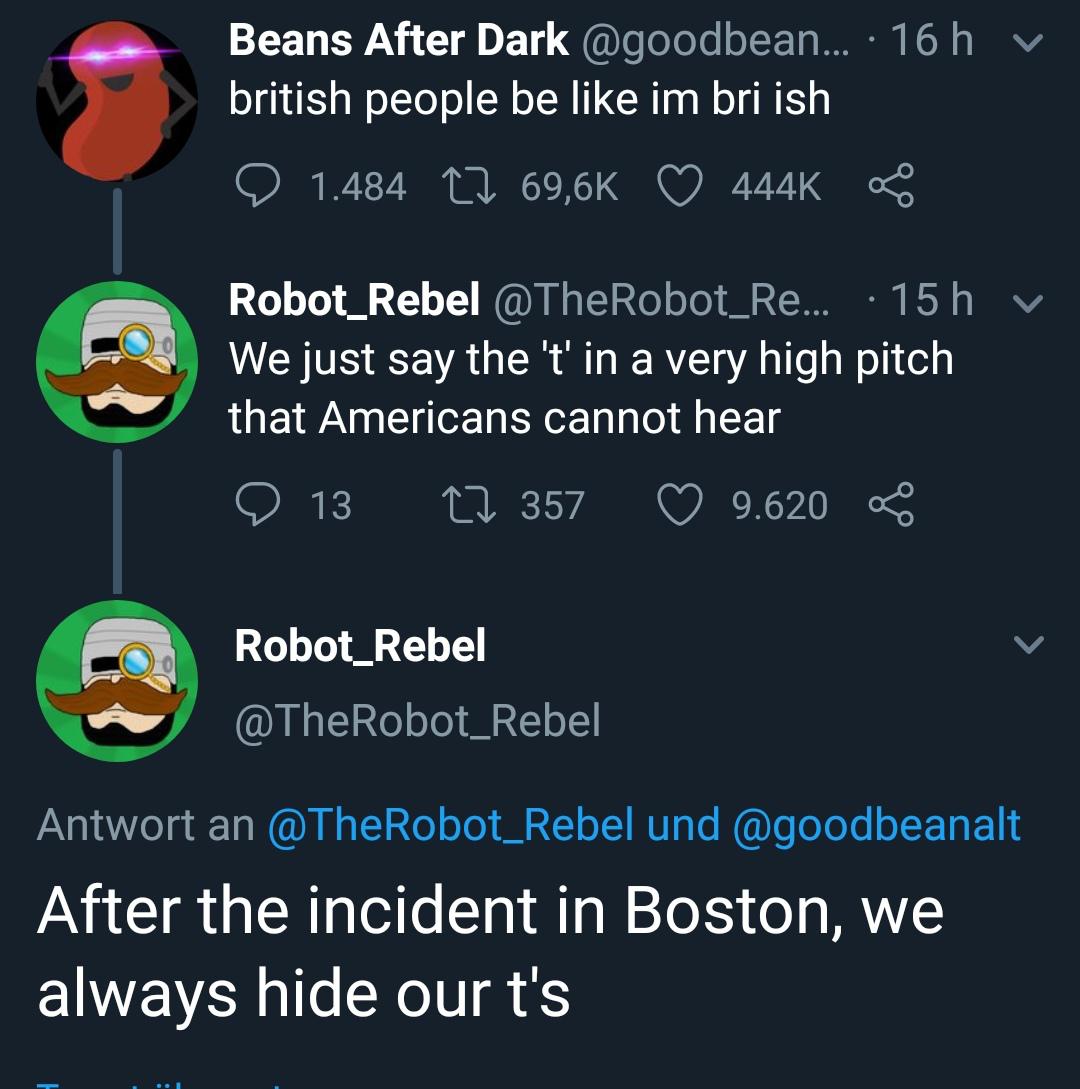
First Tweet (“british people be like im bri ish”)
-
- This is a common internet joke about how some British accents (particularly certain London accents) drop or soften the “t” sound in words.
- “British” can sound like “Bri-ish,” so the joke writes it phonetically to mimic that sound.
Second Tweet (“We just say the ‘t’ in a very high pitch…”)
-
- This is a humorous response, suggesting that British people do pronounce the “t,” but at a pitch so high that Americans can’t hear it, a silly way of defending the pronunciation joke.
Third Tweet (“After the incident in Boston…”)
-
- This is a clever historical pun. “The incident in Boston” refers to the Boston Tea Party (1773), when American colonists threw British tea into Boston Harbor as a protest against British taxation.
- The pun is that British people have been “hiding their t’s” ever since, meaning both literally hiding their “tea” (as in the Boston Tea Party) and metaphorically dropping the letter “t” from words when they speak.
So the humour works on two levels:
- A joke about British accents dropping “t” sounds.
- A witty historical reference tying that to Britain losing its “tea” in Boston.
What Was The Boston Tea Party?
On December 16, 1773, a group of American colonists in Boston, calling themselves the Sons of Liberty, boarded three British ships and dumped 342 chests of tea into Boston Harbor.
Why It Happened
It was a protest against British taxation, specifically the Tea Act of 1773, which allowed the British East India Company to sell tea directly to the colonies at a lower price, but still with a tax.
- The colonists didn’t object to cheaper tea, they objected to “taxation without representation.”
- They believed Britain had no right to tax them without giving them a voice in Parliament.
How They Did It
- The protesters disguised themselves as Mohawk Indigenous people (to hide their identities).
- They boarded the ships at night and methodically broke open the tea chests, dumping all the tea into the harbor.
- The action was peaceful, they did not harm the crew or damage other cargo.
Aftermath
Britain was furious and responded with the Coercive Acts (called the “Intolerable Acts” by colonists), which:
- Closed Boston Harbor until the tea was paid for
- Placed Massachusetts under stricter British control
This united many colonists against Britain and set the stage for the American Revolution (1775–1783).
Books About the Boston Tea Party:
Leave a Reply